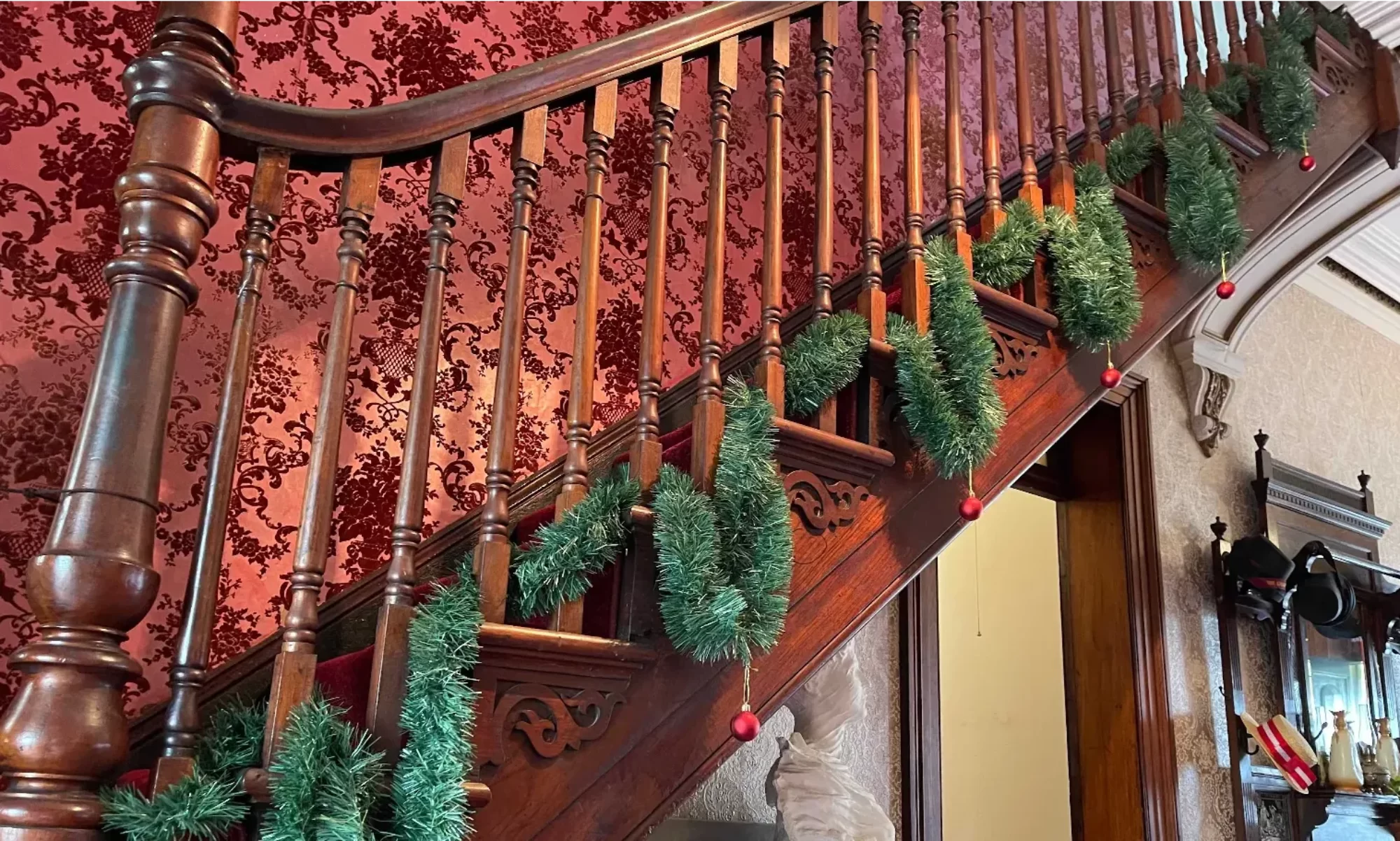by Thelma Hayman
In 1911 when I went to live with my grandparents in Matthew Street, the lower end of which is now known as Hillcrest Avenue, this particular section of Hurstville was then being opened up as a residential area. It was not until the closing of the 1914-1918 World War that Hurstville Grove began to be closely settled.
On the opposite side of the street to where my grandparents resided was the home of Mr. and Mrs. Edward Webb. It may be mentioned that Mr. Webb held the responsible position of foreman in the paint shop division of the Eveleigh Railway Workshops and that his good wife, before her marriage, was Miss Anna Hall, the eldest daughter of Mr. Hall, the first stationmaster at Hurstville. Because of our friendship with Mrs. Webb I came to know Mrs. Hall and her other two daughters and their families. The second daughter was named Lavinia and she married Mr. Albert Schloeffel, a member of the long established firm of estate agents, still operating in Hurstville as Messrs. Schloeffal and Paul. The other girl, Martha, was wedded to Mr. Horace Hearn. I believe there was a son named Thomas, but I was not acquainted with him.

The house of the Hall family is still standing at the corner of Pearl Street and Gloucester Road, opposite the present Hurstville Community Hospital. In my recollection the latter premises, known formerly as “Goshen”, was the home of the Louden family. Mr. Louden being a boot and shoe manufacturer. The house was eventually utilised as the Goshen Private Hospital and, in due course, became the community Hospital. The original building was a large white-painted weatherboard cottage, surrounded by wide verandahs, and set amidst beautifully kept gardens and shrubbery. Underneath the house was a large cellar which, in the days before household refrigeration became almost universal, was most useful for keeping food-stuffs cool.

It was customary for suburbanites to keep numerous ducks and fowls confined within wired enclosures at the rear of the house, a hole generally being cut in the base of the dividing fence to let the birds forage at will on the adjacent vacant paddock. The Hall family were no exception to this rule and much exchanging of broody hens and ducks, together with settings of eggs, went on amongst the neighbours. The merits or otherwise of the various roosters were also discussed and their exuberant crowing at the break of day was, perhaps, the principal sound to be heard in old-time Hurstville.
The good ladies of the Hall household were great makers of jams, preserves, pickles, etc., made from the fruit and vegetables grown in their back yard garden. It was a great delight in those now far off days to go down to the cellar where Mrs. Hall kept good things to eat. The rows of neatly labelled jars standing in order along the various shelves were, in modern parlance, a finger-licken” attraction, The dimly lit cellar, especially in the hot summer months, was always delightfully cool and well aired.
Of course, living so close to the Webb family my memories of them are the strongest. There were three girls and two boys, who were Mrs. Webb’s step-children (Mr. Webb having been left a widower with a very young family to rear). These children all attended Hurstville Public School. It was quite a distance to walk and there was no form of public transport for local services in those days. Quite often, instead of walking the full length of Hillcrest Avenue, we children would turn off at Belmore Road, now King Georges Road, and proceed across the overhead traffic bridge at Penshurst, this deviation being made to take eggs, and sometimes ducks and fowls, to Mrs. Hall’s place, the birds being placed in a sugar-bag in which a hole was cut at a convenient height to permit the unfortunate bird to have a last look at the surrounding world in general. The long trek to the school was then resumed. After school we would, on occasion, call at Gloucester Road again to carry back similar items to Mrs. Webb.

There were many employees of the Railway Department living close to our home at Hurstville Grove and I well remember the 1917 Railwaymen’s Strike and its often uncontrolled happenings. Mr. Webb remained loyal to the Department, being a “Staff” man by his very position, and it became necessary for him to have a police escort from the nearby railway station to his home, the strikers of the locality walking along the opposite side of the street calling out “Scab”, an opprobrious name totally undeserved in his particular case. The strikers also exhibited their fury by throwing stones on the roof of Mr. Webb’s house at all hours of the day and night. It was an offensive period to say the least, and its rancour lasted for many a long year after the event. Upon his retirement from the Railway Department, Mr. and Mrs. Webb went to live at Tahmoor where the good wife died about 1960, Mr. Webb having predeceased her.


This article was first published in the October 1970 edition of our magazine.
Browse the magazine archive.

